Search for academic programs, residence, tours and events and more.
July 20, 2023
Teacher candidates enrolled in Bachelor of Education programs across Ontario spend their time learning pedagogical approaches to teaching while building skills during hands-on placements in local classrooms.
A group of teacher candidates in the Faculty of Education at Wilfrid Laurier University have taken their learning experiences beyond the borders of Laurier’s 12 partner school boards in Ontario.
Sixty-four teacher candidates immersed themselves in classroom environments in locations including Egypt, Italy, Yellowknife and Deer Lake First Nation in northern Ontario as part of the program’s required alternative placement experience. Held during a three-week block in the program’s first year, alternative placements provide Laurier teacher candidates practical opportunities to experience education in a non-traditional setting.

“Alternative placements are an excellent opportunity for teacher candidates to experience different learning environments and develop intercultural competencies,” says Maria Cantalini-Williams, professor and dean of Laurier’s Faculty of Education. “I have observed much growth in confidence and increased awareness of comparative education practices around the world. We are conducting ongoing research to determine the impact of these experiences on teacher candidates’ perceptions and pedagogies.”
To prepare for their intercultural experiences, teacher candidates completed pre-departure training led by Laurier International, the Faculty of Education and external partners. While on placement, the students debriefed with accompanying staff and faculty members from Laurier during evening reflection sessions.
Below, four teacher candidates discuss their alternative placement experiences and how the experiences shaped their perspectives on education.
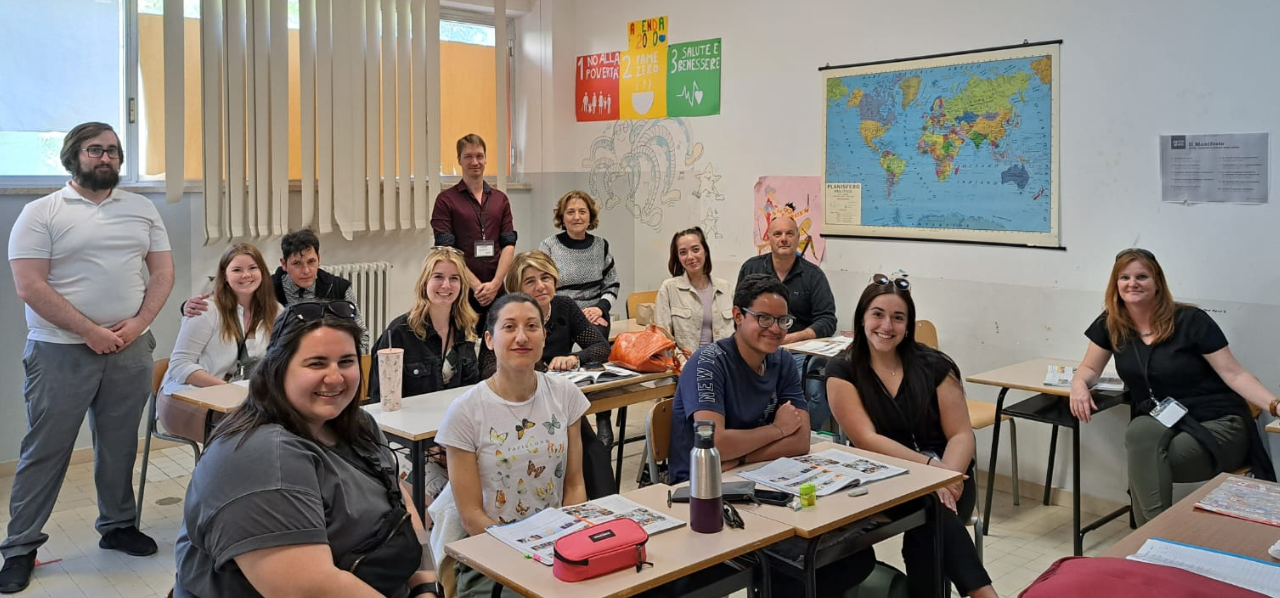
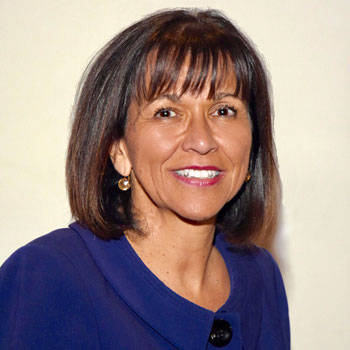
“Alternative placements are an excellent opportunity for teacher candidates to experience different learning environments and develop intercultural competencies.”
Maria Cantalini-Williams, dean, Faculty of Education.
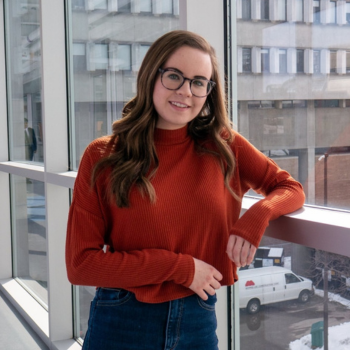
Grade 3, N.J. Macpherson School
Meagan Furgal was one of two Laurier teacher candidates to complete an alternative placement in Yellowknife during the past academic year, the first time Laurier teacher candidates have completed alternative placements in Yellowknife. Laurier opened a research office in Yellowknife in 2017 as part of a multi-year partnership dedicated to climate research.
Indigenous culture was so seamlessly integrated into the classroom I was in at N.J. Macpherson. There is a tent at the school and Indigenous community members come in each week to help. Teachers used the Dene Kede – ways of being in the five Dene nations – to teach social-emotional skills, which I really liked, as the Yellowknives Dene First Nation is a big part of the Yellowknife community.
There were about 14 educational assistants (EAs) at the school, which seemed like more than usual compared to schools in Waterloo Region. The EAs were integrated into the classrooms and teachers could really focus on teaching.
This was a special experience and I feel more confident about incorporating Indigenous elements into my teaching practice. We had an introduction to Indigeneity during the first year of the Education program and I am looking forward to learning more in year two.
The associate teacher I worked with in Yellowknife was a Montessori teacher and brought a lot of that into her teaching style. There were lots of opportunities for small-group interaction and instruction, which seemed to have a positive impact on the students. I’m excited to plan for small-group activities in my next placement.
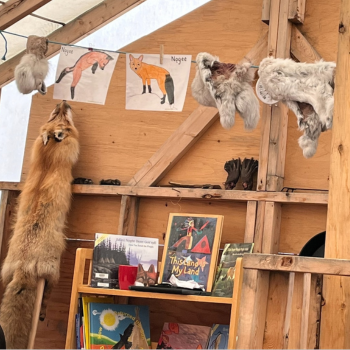
"This was a special experience and I feel more confident about incorporating Indigenous elements into my teaching practice."
Meagan Furgal, Laurier teacher candidate.
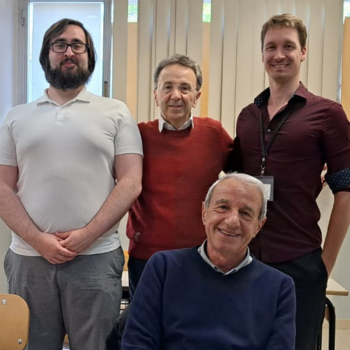
English language for adults, Scuole Ovidius Comprehensivo group of schools
Jeremy Vickers was among 42 Laurier teacher candidates selected to complete an alternative placement in Sulmona, Italy, assisting Italian classroom teachers with English-language instruction. The partnership with the group of schools in Scuole Ovidius Comprehensivo began in 2010.
For the alternative placement, we were encouraged to experience a grade or classroom that we didn’t set out to teach. As my other placements were in junior and intermediate classrooms in Ontario, I chose to teach adults in Italy.
I taught conversational English to a small group of adults aged 40 to 60. They were simply looking to expand their English-speaking skills for fun or personal development, so it was less formal than a traditional classroom experience. Some days I would deliver a lesson and we’d discuss a certain topic in English. Other days, it was more relaxed, and we just conversed so they could practice speaking in English.
I also observed a Grade 1 classroom, where much of their English-language learning was taught through fun, age-appropriate activities like singing and dancing.
In Italy, everyone seemed to have such good relationships: the teachers and students, the teachers and parents, and the students themselves were kind to one another. If a student said they were feeling sad, another student gave them a hug to cheer them up. If it was someone’s birthday, there were lots of treats and celebrations. They genuinely seemed to care for each other and there was a good feeling within the school. It felt like a big family, and I think that is why the students were so keen to be there and learn. That’s a win-win situation for everyone.
For me, I could really see how building rapport is so important to student success. As a kid, I remember not liking certain teachers and how that impacted my feelings about school. Establishing a positive connection with students can make all the difference.
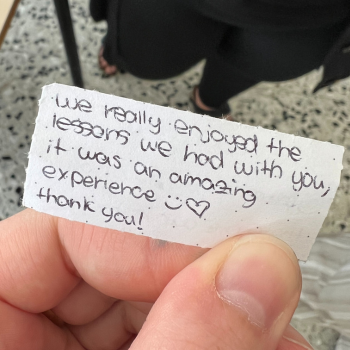
"For me, I could really see how building rapport is so important to student success. Establishing a positive connection with students can make all the difference."
Jeremy Vickers, Laurier teacher candidate.
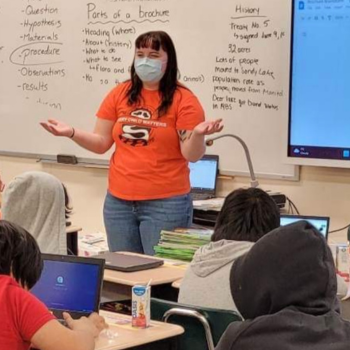
Grade 4, Deer Lake School
Laura Juodvirsis was one of three students completing an alternative placement at Deer Lake First Nation, located about 1,800 kilometres northwest of Toronto. The placement was arranged in partnership with Teach for Canada, a non-profit organization that connects teachers with teaching opportunities in First Nations schools in Ontario and Manitoba.
I chose Deer Lake First Nation because I wanted to learn more about Indigenous pedagogy in the classroom, especially Oji-Cree cultural practices and history. I was placed in a Grade 4 classroom where I led English and physical education lessons, but I also supported students in all other subject areas. Each day, I facilitated small groups for math and science activities. I also assisted with supply teaching in Grade 8 and Grade 9 classes and worked with the school cook to prepare meals for staff and students.
The community is very close-knit and teachers spend a lot of time with their students’ families outside the classroom. There is definitely a feeling of kinship and I was fortunate to be included in that. I went to Deer Lake to teach but came back with so much new learning.
I observed less hands-on learning in Deer Lake compared to the classrooms I have seen in Waterloo Region. This surprised me as students could often be found learning from their families in very hands-on ways outside of the classroom, such as hunting, sewing and cooking.
The Deer Lake community is extremely resilient. Many of the Elders are residential school survivors but continue to celebrate their culture by passing it on to the youth. Much of the community is fluent in Oji-Cree, including two kindergarten classes that are taught fully in their language. Students from very young ages are extremely knowledgeable about the plants and animals surrounding them, including how to properly prepare them for meals.
This experience taught me that my priority as a teacher is to ensure my students feel safe and accepted in my classroom. I better understand how to support students and believe that curriculum cannot be effectively taught unless students feel safe and comfortable at school. Instruction and assessment must be culturally and contextually relevant in order for students to be engaged and successful.
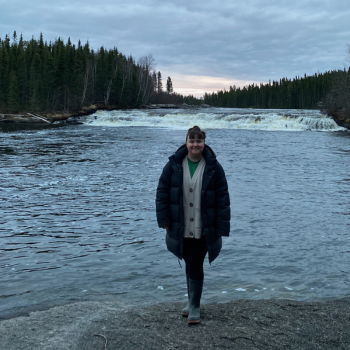
"I went to Deer Lake to teach but came back with so much new learning."
Laura Juodvirsis, Laurier teacher candidate.
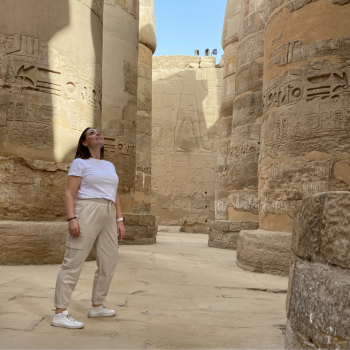
Grades 10 and 11, Dover American International School
Angela Mota was one of 20 students to complete an alternative placement at Dover American International School in Cairo, Egypt. The private school serves nearly 1,000 Egyptian students in kindergarten to Grade 12 and uses an American curriculum. English is the language of instruction.
I believe we learn best when we immerse ourselves in different experiences, so the opportunity to learn in an international school allowed me to see how Egypt implements curriculum. It also provided an opportunity to embrace a new culture and develop a deeper understanding and appreciation for diversity.
My alternative experience was in Grade 10 and Grade 11 English classes where students studied Shakespeare’s Macbeth, poetry and grammar. While there, I had the opportunity to lead instruction and I taught Emily Dickinson’s poem Because I could not stop for Death.
Education at Dover American International School is much more teacher-directed as opposed to inquiry-based learning found in Ontario classrooms. As an American school, the focus at Dover is preparing students for the scholastic aptitude test, which is required for entry into some colleges and universities.
The conversations I had with other teachers and students at Dover made an impact on me. They broadened my worldview and taught me that, despite our different cultural backgrounds, our similarities outweigh our differences. This will positively impact my teaching because it shows how important cross-cultural understanding, empathy and inclusion are to create positive experiences for all students.